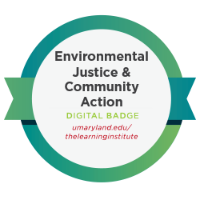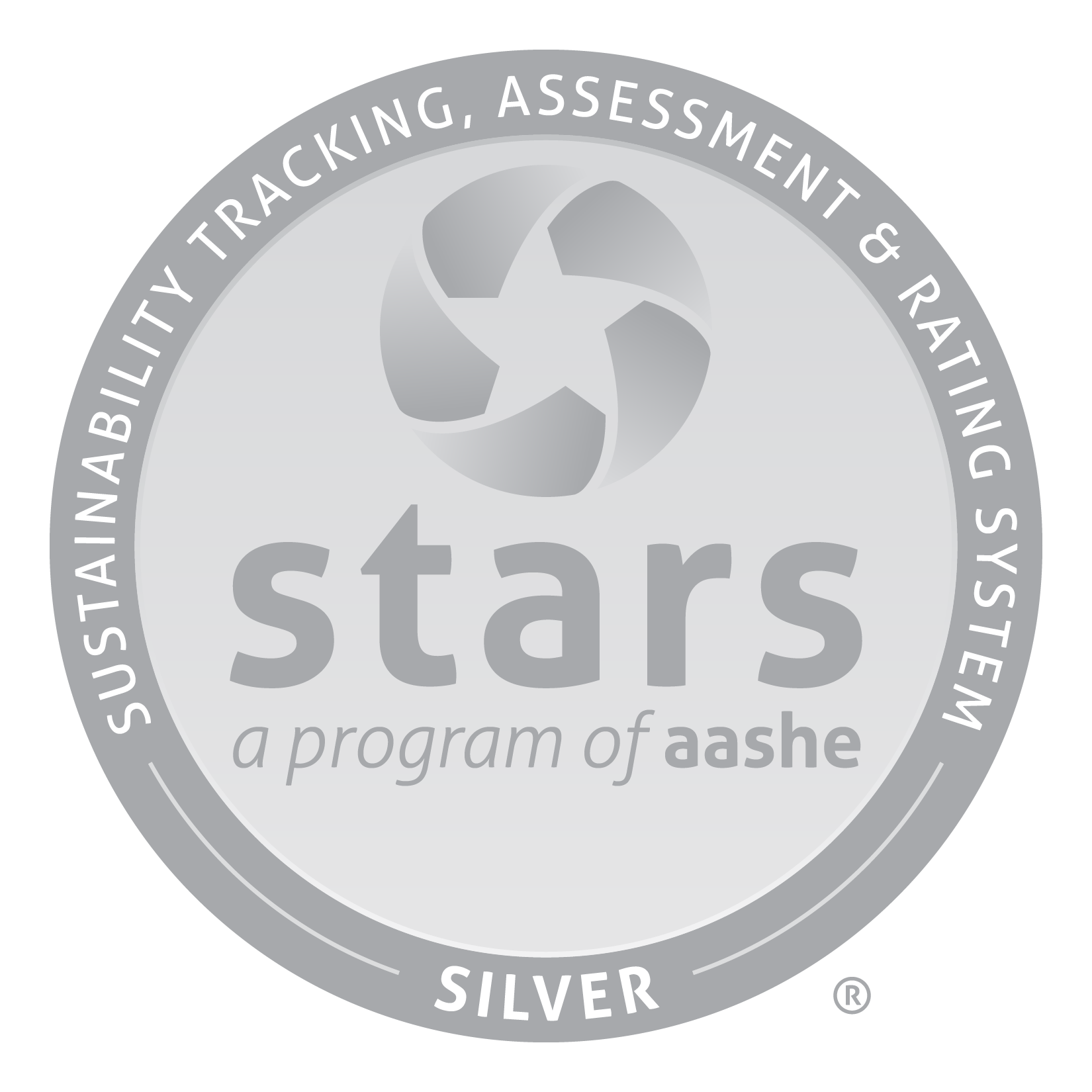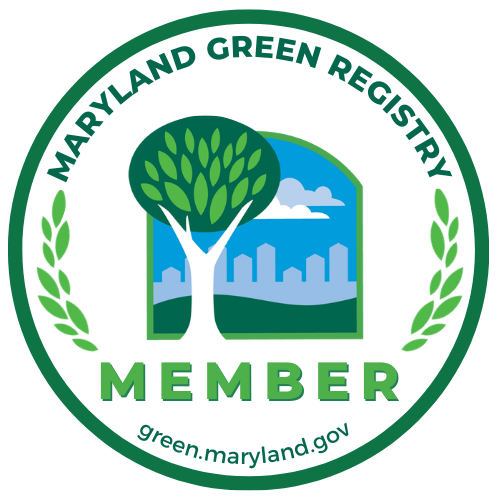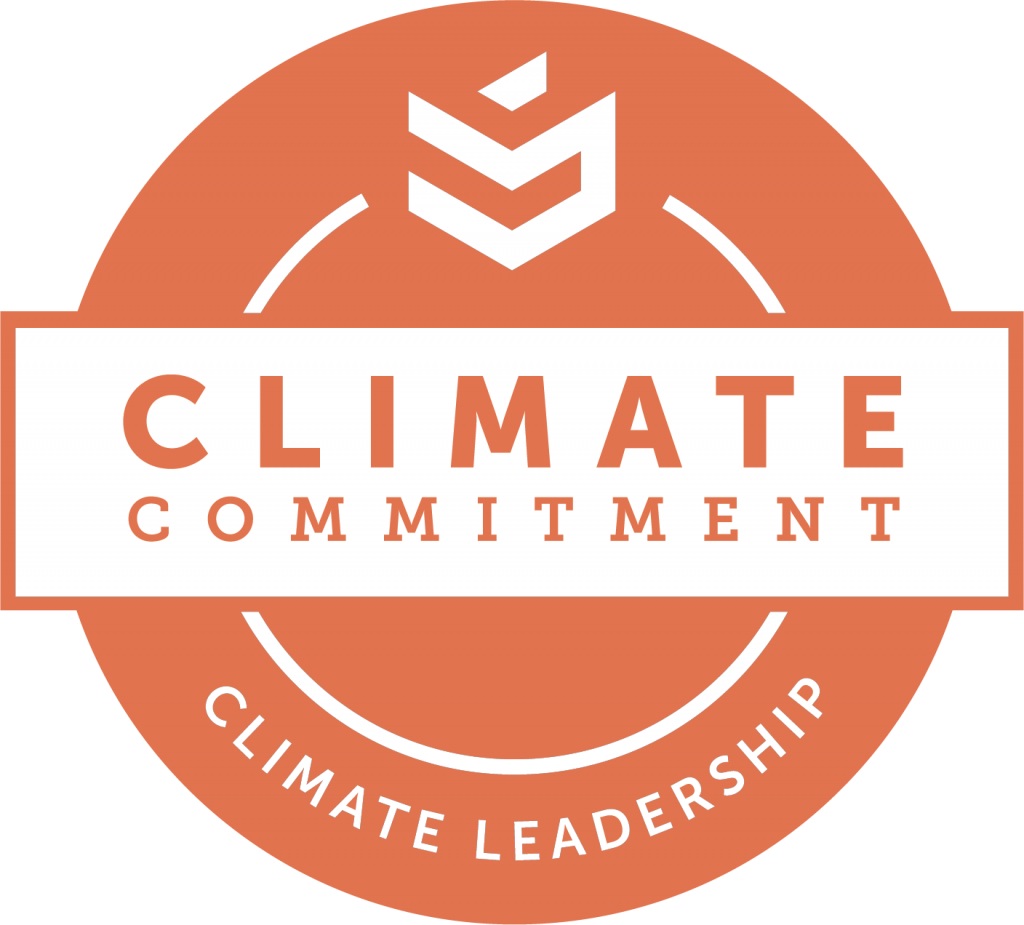Education and Research
For a full list of course offerings at UMB, visit SURFS.
To submit a missing course to our sustainability course inventory, please email sustainability@umaryland.edu.
The course inventory was last updated in December 2025 and lists courses for the Spring 2026 semester.
Sustainability Leadership Micro-Courses
The UMB Office of Sustainability has launched a series of online, asynchronous micro-courses about sustainability leadership. All three courses are now live and accessible to all UMB students, staff, and faculty. We are excited to offer these courses through The Learning Institute to meet the unique needs and schedules of our campus constituents while recognizing the value of sustainability education.
-
Foundations of Sustainability
If you are affiliated with UMB, you can register to take the first course (Foundations of Sustainability) here.
-
Making Sustainable Change
If you are affiliated with UMB, you can register to take the second course (Making Sustainable Change) here.
-
Environmental Justice and Community Action
If you are affiliated with UMB, you can register to take the third course (Environmental Justice and Community Action) here.
Interprofessional
In Spring 2024, the first interprofessional course for Climate Change, Health, and Society was introduced. CIPP650 is available to medical, science, law, and other professional students with the goal of providing foundational education in the science of climate change, health and societal impacts, and current and future solutions.
The course is offered each spring and open to professional and graduate students across UMB as well as the Marine, Estuarine, Environmental Sciences (MEES) Graduate Program. During the summer, students have the opportunity to participate in the UMB Provost's Climate Health & Resiliency Summer Internships. In the fall, there are planned speaker series and a daylong symposium created with a grant through the Center for Interprofessional Education at UMB.
Learn more about the course at the Climate Change, Health, and Society website.
Francis King Carey School of Law
The University of Maryland Francis King Carey School of Law Environmental Law Program’s curriculum is one of the most extensive in the country, offering courses in a wide range of areas. In addition to taking a comprehensive Environmental Law survey course, students may choose from a variety of advanced courses and seminars to develop a deeper understanding of particular areas of interest.
These classes are taught by outstanding permanent and adjunct faculty who are experts in the field, including professor Robert Percival, JD, who is the principal author of “Environmental Regulation: Law, Science and Policy,” the most widely used environmental law casebook, and teaches, among other courses, an Environmental Law Seminar on Global Environmental Law.
For a list of regularly offered courses in the Environmental Law concentration, visit the School of Law’s website.
School of Nursing
The relationship between human health and our environment, including air (indoor and out), water, food, and products is a vital part of nursing assessments. To meet this growing need, the University of Maryland School of Nursing (UMSON) has developed a 12-credit Postbaccalaureate Certificate in Environmental Health for professional nurses. This program provides students with a comprehensive understanding of multidisciplinary and multi-agency roles in environmental health as well as the critical role they play in protecting environmental and public health
UMSON’s Community and Public Health Environmental Initiative (CPHEI) provides health oversight for children and families served by Baltimore City Early Head Start (EHS), Head Start (HS), and Family Support Centers (FSCs). Graduate and undergraduate nursing students, under the supervision of licensed faculty and staff, conduct well-child physical exams and health screenings, as well as education.
CPHEI implements the Eco-Healthy Child Care Program, which recognizes that children’s surroundings — including the air they breathe, water and food they consume, and where they live, learn, and play — influence their health. This program is implemented in CPHEI-affiliated Early Head Starts, Head Starts, and Family Support Centers.
School of Graduate Studies
The Marine Estuarine & Environmental Sciences (MEES) Graduate Program’s mission is to educate students to become the scientific leaders and environmental problem-solvers of the future. Using an interdisciplinary approach, MEES students are trained to engage in scientific discovery, integration, and application to generate new knowledge and to solve environmental problems. Based around four Foundations, the MEES program was established to breakdown barriers between disciplines and to promote inter-disciplinary and trans-disciplinary research through its multi-institutional structure which leverages the full breadth of expertise within the University System of Maryland (USM). MEES curriculum, designed around four Areas of Specialization (AOS) or Foundations: Environment & Society, Earth & Ocean Science, Ecological Systems, and Environmental Molecular Science & Technology, combines formal coursework, project-based learning and internships to provide exposure to state-of-the-art tools and technologies in equipping students for careers in government, commercial, the non-profit sector and academia. Learn more here.
Contact
Office of Sustainability
620 W Lexington St
6th Floor
Baltimore, MD 21201



.png)
.png)




